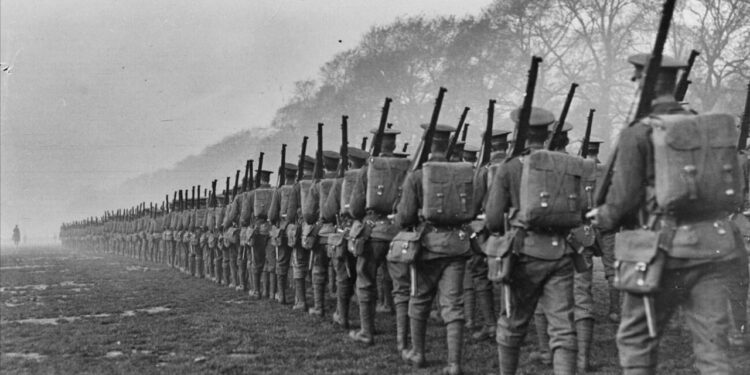World War I, often called the Great War, shattered Europe’s sense of order, stability and progress. Between 1914 and 1918, more than 16 million people died in a conflict that redrew borders, collapsed empires, and ushered in a century of ideological upheaval. It was a war unlike any before it—industrial, mechanised, and horrifyingly impersonal.
Sparked by the assassination of Archduke Franz Ferdinand of Austria-Hungary in Sarajevo in June 1914, the war rapidly escalated as complex alliances pulled in powers across the continent. Germany and Austria-Hungary faced off against the Allied forces of Britain, France, and Russia, later joined by Italy and the United States. What many expected to be a brief confrontation quickly devolved into years of trench warfare, attrition, and unprecedented destruction.
The Western Front, stretching from the North Sea to the Swiss border, became a deadly stalemate. Soldiers lived and died in mud-filled trenches, assaulted by artillery barrages, gas attacks, and machine gun fire. Battles such as the Somme and Verdun symbolised the futility of the fighting—thousands of lives lost for mere yards of ground.
The war also marked a transformation in global warfare. New technologies, from tanks to aircraft, altered the nature of combat. Naval blockades crippled economies. Civilians became targets. Propaganda became a weapon, and total war blurred the line between front and home front. The war was no longer confined to battlefields—it was a worldwide economic, psychological and political struggle.
Beyond Europe, the war affected colonies and reshaped global politics. Soldiers from Africa, Asia, and the Caribbean were conscripted or volunteered to fight for European powers. The Ottoman Empire, aligning with the Central Powers, waged campaigns in the Middle East, setting the stage for post-war borders and tensions that continue to resonate.
The end came in November 1918, but peace proved elusive. The Treaty of Versailles in 1919 imposed harsh penalties on Germany, sowing resentment and economic hardship. The Austro-Hungarian and Ottoman empires dissolved, giving rise to new states but also new conflicts. In Russia, revolution led to civil war and the rise of the Soviet Union. The human and political cost of the war left wounds that never fully healed.
World War I did not end war—it paved the way for another, even more devastating conflict two decades later. But it remains a turning point in modern history, the moment when the old order crumbled and the twentieth century’s brutal realities took hold.
REFH – newshub finance



Recent Comments